Mẹo về Bài tập to V và Ving lop 10 violet Chi Tiết
Dương Anh Sơn đang tìm kiếm từ khóa Bài tập to V và Ving lop 10 violet được Cập Nhật vào lúc : 2022-08-25 07:52:04 . Với phương châm chia sẻ Bí kíp về trong nội dung bài viết một cách Chi Tiết 2022. Nếu sau khi đọc nội dung bài viết vẫn ko hiểu thì hoàn toàn có thể lại Comment ở cuối bài để Tác giả lý giải và hướng dẫn lại nha.Bạn đang quan tâm đến Bài Tập Tiếng Anh Về Ving Và To V Violet Có Đáp Án Violet, Bài Tập Về To V Và Ving Có Đáp Án phải không? Nào hãy cùng Truongxaydunghcm.edu đón xem nội dung bài viết này ngay sau đây nhé, vì nó vô cùng thú vị và hay đấy!
Nội dung chính- Cách sử dụng một số trong những động từ theo sau là V-ing và to-V1. Những động từ theo sau là "to V"2. Những động từ theo sau là "V-ing"3. Những động từ theo sau gồm cả “to V” và “V-ing”:4. Mẹo để biết chọn V-ing hay To V5. Bài tập áp dụng dạng từ Ving và to-V6. Đáp án bài rèn luyện sử dụng Ving và to-VVideo liên quan
Làm sao để ghi nhớ những thì trong tiếng Anh ?Mẹo nào để so sánh những thì tiếng Anh?Khi nào dùng be used to + V, lúc nào dùng used to + V-ing?
Bài viết ngày hôm nay, Step Up chia sẻ với bạn tổng quan về 12 thì trong tiếng Anh, tín hiệu nhận ra và bảng tóm tắt những thì một cách đầy đủ nhất.
Đang xem: Bài tập về những thì trong tiếng anh violet có đáp án
Trong tiếng Anh được phân thành 12 thì cơ bản theo 3 mốc thời gian: Hiện tại, Quá khứ và Tương lai. Step Up sẽ chia sẻ khái quát với những bạn công thức, cách dùng và tín hiệu nhận ra những thì trong tiếng Anh. Chúng ta cùng tìm hiểu nào!
Toàn bộ kiến thức và kỹ năng về 12 thì tiếng Anh và phối hợp sử dụng những thì được trình bày rõ ràng trong sách Hack Não Ngữ Pháp – Sản phẩm mới của Step Up. Với hệ bài tập trong Sách và App giúp bạn hoàn toàn có thể nói rằng đúng thì của một câu đơn giản TÌM HIỂU NGAY
Nội dung nội dung bài viết
Định nghĩa: Thì hiện tại đơn (Simple Present hay Present Simple) là một thì trong tiếng Anh tân tiến. Thì hiện tại đơn diễn tả một sự việc hay một hành vi mang tính chất chất chất chung chung, tổng quát lặp đi lặp lại nhiều lần hoặc một sự thật hiển nhiên hay một hành vi ra mắt trong thời gian hiện tại.
Khẳng định: S + V(s/es) + O
Ex: He walks every day. (Anh ấy đi bộ mỗi ngày.)
Phủ định: S + do/does not + V_inf + OEx: I don’t like to eat durian. (Tôi không thích ăn sầu riêng.)Nghi vấn: Do/Does + S + V_inf + O?Ex: Do you often study late? (Bạn có thường xuyên đi học muộn không?)
Khẳng định: S + am/is/are + O.
Ex: My mother is a nurse. (Mẹ tôi là một y tá.)
Phủ định: S + am/is/are not + O.Ex: He’s not a bad guy. (Anh ấy không phải là một kẻ xấu.)Nghi vấn: Am/is/are + S + O?Ex: Are you ready? (Bạn đã sẵn sàng chưa?)
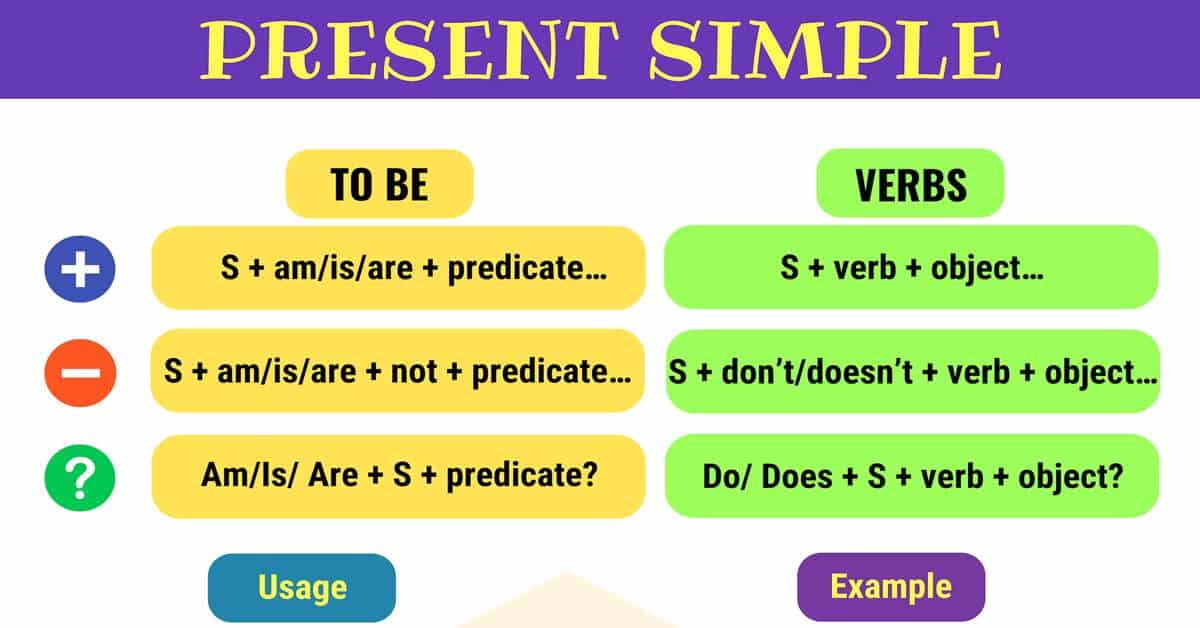
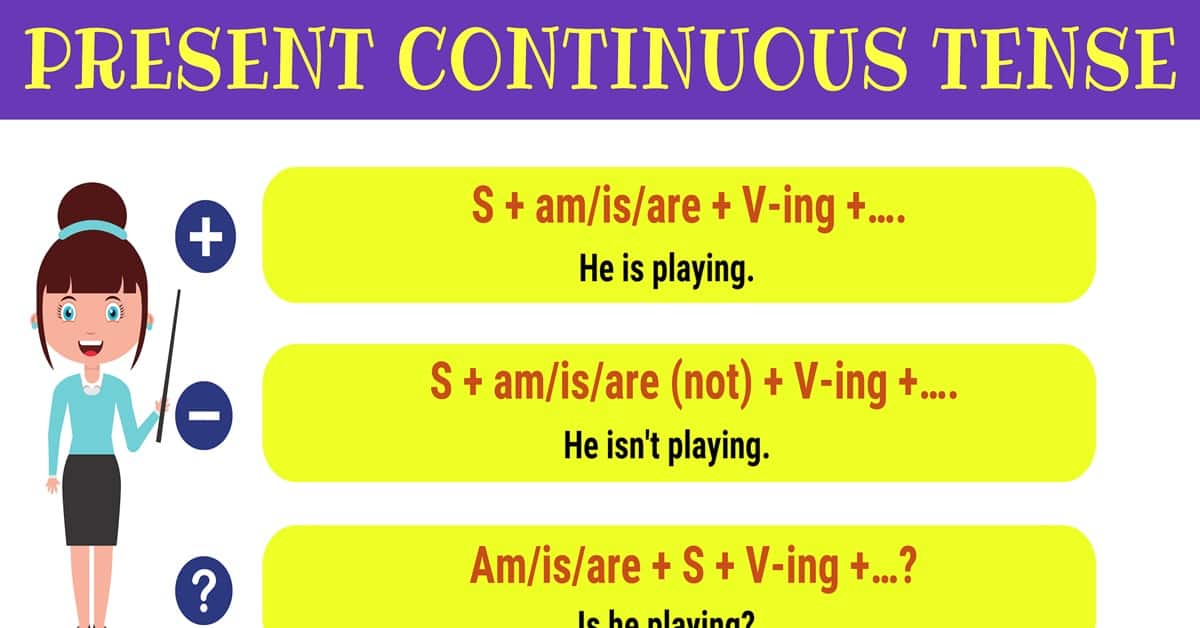
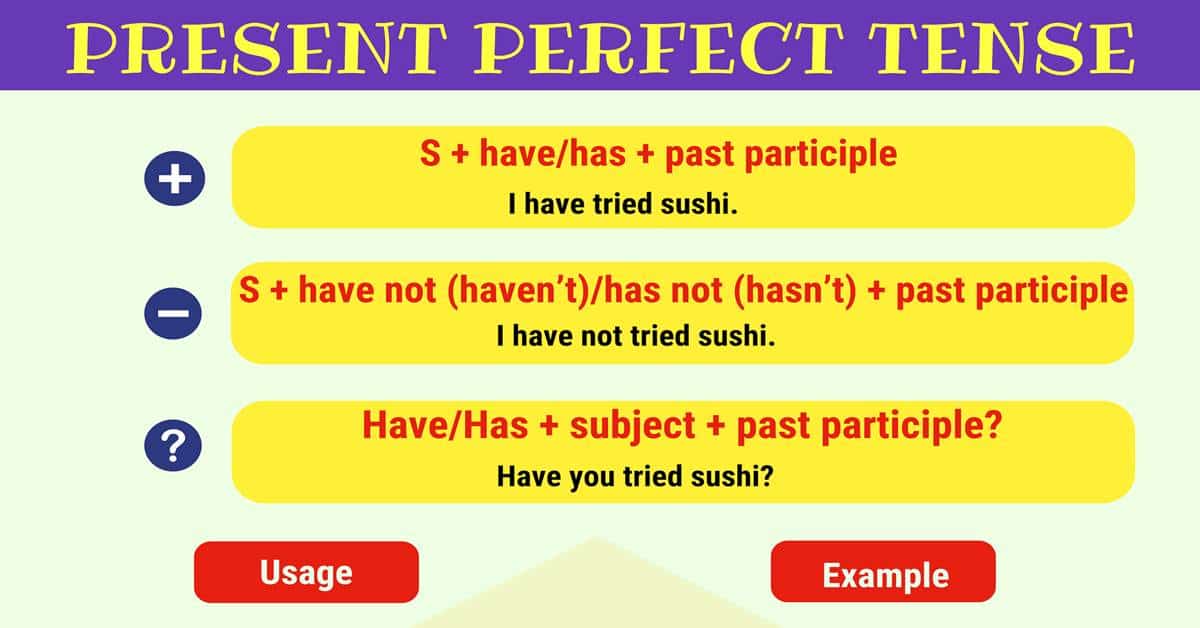
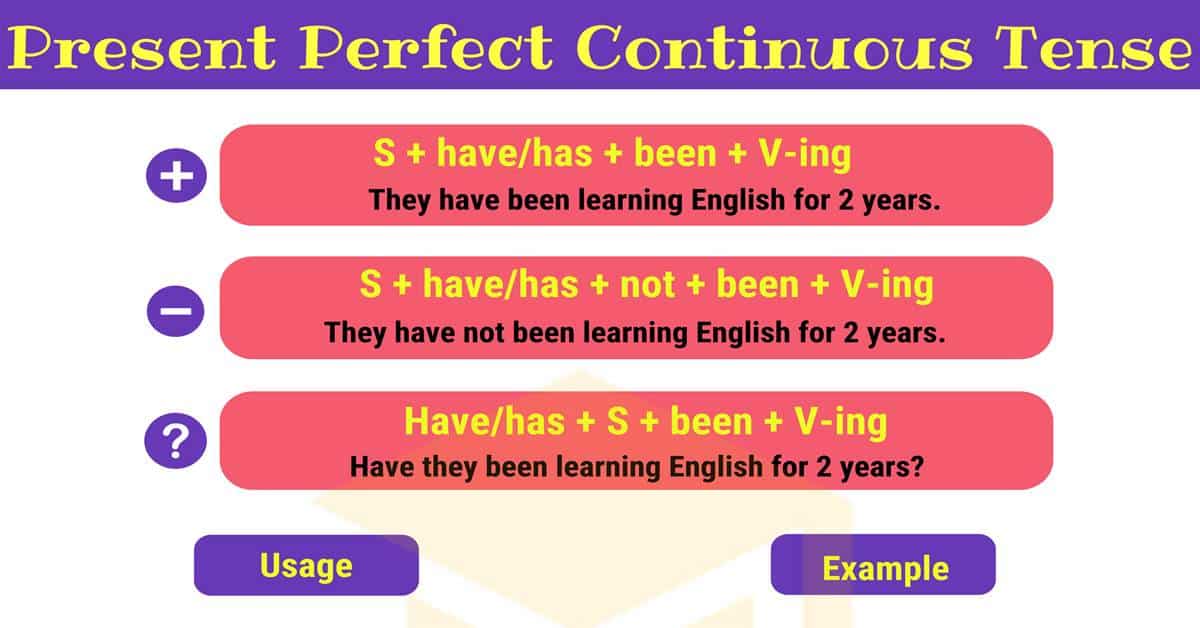
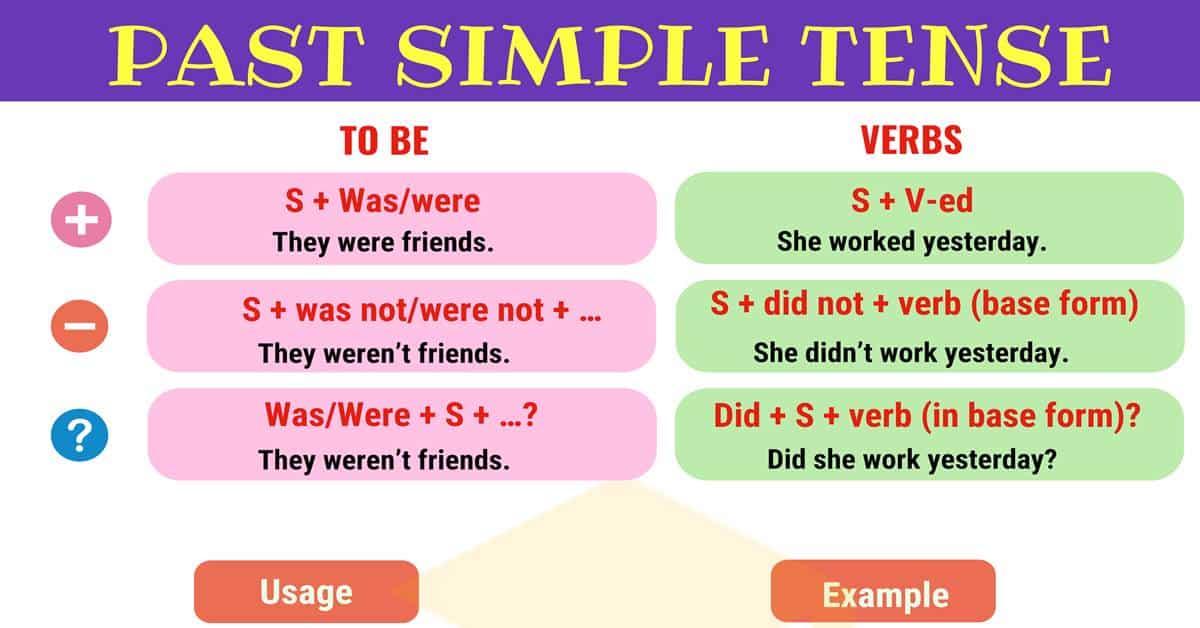
Đang xem: Bài tập tiếng anh về ving và to v violet
Danh mục văn bản Điều khuynh hướng về trong dung bài viết
Xem thêm: Đề Thi Thpt Quốc Gia Môn Hóa 2022 File Word Có LờI GiảI Chi TiếT
Thực Hiện Cuộc Gọi Khẩn Cấp Trên Iphone 4, Hướng Dẫn Sử Dụng Iphone 4S
Xem thêm: Đề Kiểm Tra 1 Tiết Tiếng Anh Lớp 7 Chương Trình Mới Lần 1, Đề Kiểm Tra 1 Tiết Môn Tiếng Anh Lớp 7
Combo Đội Quân Doraemon Thêm, Truyện Đội Quân Đôrêmon Thêm Tập 6
Vậy là đến đây nội dung bài viết về Bài Tập Tiếng Anh Về Ving Và To V Violet Có Đáp Án Violet, Bài Tập Về To V Và Ving Có Đáp Án đã tạm dừng rồi. Hy vọng bạn luôn theo dõi và đọc những nội dung bài viết hay của chúng tôi trên website Truongxaydunghcm.edu
Chúc những bạn luôn gặt hái nhiều thành công trong môi trường tự nhiên thiên nhiên sống đời thường!
Một trong những hiện tượng kỳ lạ ngữ pháp thường gặp trong những bài thi tiếng Anh là dạng chia động từ dạng V-ing và to V (hay còn gọi là Gerund and To Infinitive). Hiện tượng ngữ pháp tiếng Anh này đặc biệt ở chỗ chúng là những quy tắc đặc biệt nên phải học thuộc mà không theo quy luật nào cả.
- Bài tập về "to V" và "Ving" có đáp ánBài tập to V và Ving MỚI
Cách sử dụng một số trong những động từ theo sau là V-ing và to-V
- 1. Những động từ theo sau là "to V"2. Những động từ theo sau là "V-ing"3. Những động từ theo sau gồm cả “to V” và “V-ing”:4. Mẹo để biết chọn V-ing hay To V5. Bài tập áp dụng dạng từ Ving và to-V6. Đáp án bài rèn luyện sử dụng Ving và to-V

Để giúp những em sử dụng hai dạng thức trên một cách thuận tiện và đơn giản hơn, VnDoc sẽ chia sẻ một số trong những kiến thức và kỹ năng hữu ích dành riêng cho những em tham khảo.
1. Những động từ theo sau là "to V"
Có 2 trường hợp:
a. [Công thức: S + V + to V]
Afford: đủ khả năngAppear: xuất hiệnFail: thất bạiArrange: sắp xếpBear: chịu đựngBegin: bắt đầuChoose: lựa chọnPromise: hứaDecide: quyết địnhExpect: mong đợiWish: ướcRefuse: từ chốiLearn: học hỏiHesitate: do dựIntend: dự địnhPrepare: chuẩn bịManage: thành côngNeglect: thờ ơPropose: đề xuấtOffer: đề nghịPretend: giả vờSeem: dường nhưSwear: thềWant: muốnb. [Công thức: S + V + O + to V]
Advise: khuyênAsk: hỏiEncourage: động viênForbid/ ban: cấmPermit: cho phépRemind: nhắc nhởAllow: cho phépExpect: mong đợiInvite: mờiNeed: cầnOrder: ra lệnhPersuade: thuyết phụcRequest: yêu cầuWant: muốnWish: ướcInstruct: hướng dẫnMean: nghĩa làForce: ép buộcTeach: dạyTempt: xúi giụcwarn: báo trướcurge: thúc giụctell: bảorecommend: khuyênrequire: đòi hỏiimplore: yêu cầuhire: thuêdirect: hướng dẫn, chỉ huydesire: ao ước, them thuồngdare: dámconvince: thuyết phụccompel:cưỡng bách, bắt buộcchoose: lựa chọncharge: giao nhiệm vụchallenge: thách thứccause: gây rabeg: van xinappoint: chỉ định2. Những động từ theo sau là "V-ing"
Anticipate: Tham giaAvoid: TránhDelay: Trì hoãnPostpone: Trì hoãnQuit: BỏAdmit: chấp nhậnDiscuss: thảo luậnMention: đề cậpSuggest: gợi ýUrge: thúc giụcKeep: giữUrge: thúc giụcContinue: tiếp tụcInvolve : bao gồmEnjoy: thíchPractice: thực hànhDislike: ko thíchMind: quan tâmTolerate: cho phépLove: yêuHate: ghétResent: gửi lạiUnderstand: hiểuResist: chống cựRecall: nhắcConsider: cân nhắcDeny: từ chốiImagine: tưởng tượngNgoài ra, những cụm từ sau cũng theo sau là V-ing:
- It’s no use/It’s no good...
- There’s no point (in)...
- It’s (not) worth...
- Have difficult (in)...
- It’s a waste of time/money...
- Spend/waste time/money...
- Be/get used to...
- Be/get accustomed to...
- Do/Would you mind...?
- Be busy doing something...
- What about...? How about...?
3. Những động từ theo sau gồm cả “to V” và “V-ing”:
Advise, attempt, commence, begin, allow, cease, continue, dread, forget, hate, intend, leave, like, love, mean, permit, prefer, propose, regret, remember, start, study, try, can’t bear, recommend, need, want, require.
Stop V-ing: dừng làm gì (dừng hẳn)
Stop to V: tạm dừng để thao tác gì
Eg:
- Stop smoking: dừng hút thuốc.Stop to smoke: tạm dừng để hút thuốc
Remember/ forget/ regret to V: nhớ/ quên/ tiếc sẽ phải làm gì (ở hiện tại – tương lai)
Remember/ forget/ regret V-ing: nhớ/ quên/ tiếc đã làm gì (ở quá khứ)
Eg:
- Remember to send this letter (Hãy nhớ gửi bức thư này).Don’t forget to buy flowers (Đừng quên mua hoa nhé).I regret to inform you that the train was cancelled (Tôi rất tiếc phải đáp ứng thông tin – cho anh rằng chuyến tàu đã bị hủy).I paid her $2. I still remember that. I still remember paying her $2. (Tôi nhớ đã trả cô ấy 2 đô la rồi).She will never forget meeting the Queen. (Cô ấy không quên lần gặp nữ hoàng).He regrets leaving school early. It is the biggest mistake in his life. (Anh ấy hụt hẫng vì đã bỏ học quá sớm).
Try to V: nỗ lực làm gì
Try V-ing: thử làm gì
Eg:
- I try to pass the exam. (Tôi nỗ lực vượt qua kỳ thi).You should try unlocking the door with this key. (Bạn nên thử Open với chiếc khóa này).
Like V-ing: Thích làm gì vì nó thú vị, hay, mê hoặc, làm để thường thức.
Like to do: thao tác đó vì nó là tốt và thiết yếu
Eg:
- I like watching TV.I want to have this job. I like to learn English.
Prefer V-ing to V-ing: thích làm gì hơn hơn làm gì
Prefer + to V + rather than (V): thích làm gì hơn hơn làm gì
Eg:
- I prefer driving to traveling by train.I prefer to drive rather than travel by train.
Mean to V: Có ý định làm gì.
Mean V-ing: Có nghĩa là gì.
Eg:
- He doesn’t mean to prevent you from doing that. (Anh ấy không còn ý ngăn cản bạn thao tác đó.)This sign means not going into. (Biển báo này còn có ý nghĩa là không được đi vào trong.)
Need to V: cần làm gì
Need V-ing: cần phải làm gì (= need to be done)
Eg:
- I need to go to school today.Your hair needs cutting. (= your hair needs to be cut)
Used to V: đã từng/thường làm gì trong quá khứ (giờ đây không làm nữa)
Be/Get used to V-ing: quen với việc gì (ở hiện tại)
Eg:
- I used to get up early when I was young. (Tôi thường dậy sớm lúc còn trẻ)I’m used to getting up early. (Tôi quen với việc dậy sớm rồi)
Advise/allow/permit/recommend + Object + to V: khuyên/được cho phép/ đề nghị ai làm gì.
Advise/allow/permit/recommend + V-ing: khuyên/được cho phép, đề nghị làm gì.
Eg:
- He advised me to apply once.He advised applying once.They don’t allow us to park here.They don’t allow parking here.
See/ hear/ smell/ feel/ notice/ watch + Object + V-ing: cấu trúc này được sử dụng khi người nói chỉ tận mắt tận mắt chứng kiến 1 phần của hành vi.
See /hear/ smell/ feel/ notice/ watch + Object + V: cấu trúc này được sử dụng khi người nói tận mắt tận mắt chứng kiến toàn bộ hành vi.
Eg:
- I see him passing my house everyday.She smelt something burning and saw smoke rising.We saw him leave the house.I heard him make arrangements for his journey.
4. Mẹo để biết chọn V-ing hay To V
Chọn V-ing hay To V
- Dùng V-ing với hành vi kéo dãn, To V với hành vi ngắn
Ví dụ:
I began teaching English 19 years ago .
She began to feel worried and anxious .
- Khi những động từ này ở bất kì thì tiếp diễn nào, ta không thể dùng ‘V-ing’
Ví dụ:
I’m beginning to learn French
I was starting to leave home for school
- Với những động từ chỉ suy nghĩ, hiểu biết ta phải dùng ‘to-V’
Các động từ như: think, understand, remember, forget, realize, recognize, appreciate, comprehend, know, …
Ví dụ:
I begin to understand him
I start to forget all about this sự kiện
- Với những từ chỉ tình cảm, cảm xúc ta không dùng ‘ V-ing’
Những từ chỉ tình cảm, cảm xúc: love, hate, miss, admire, respect, adore,…
Với những từ chỉ cảm hứng ta không dùng ‘ V-ing’
Những từ chỉ cảm hứng: feel, hear, see, smell, taste…
- Sau động từ khiếm khuyết (MODAL VERBS) + động từ nguyên mẫu
Can & Cannot, Could & Could not, May & May not, Might & Might not, Must & Must not, Shall & Shall not, Should & Should not , Will & Will not, Would & Would not
- Nếu động từ thứ 2 ra mắt sau động từ thứ 1; thì động từ thứ 2 là “TO VERB”
- Nếu động từ thứ 2 ra mắt trước động từ thứ 1; thì động từ thứ 2 là “V-ING”
Xác định động từ theo sau là V-ing và To V không thật trở ngại vất vả, tuy nhiên nên phải biết bản chất và ghi nhớ kỹ những từ, cụm từ cũng như biết những mẹo để lựa chọn sử dụng V-ing hay To V.
Sau đây là một số trong những bài tập rèn luyện cách sử dụng Ving và to-V Vn.Doc biên soạn và sưu tập
5. Bài tập áp dụng dạng từ Ving và to-V
I. Chia động từ trong ngoặc
1. I can’t imagine Peter _____ (go) by bike.
2. He agreed _____ (buy) a new car.
3. The question is easy _____ (answer).
4. The man asked me how _____ (get) to the airport.
5. I look forward to _____ (see) you the weekend.
6. Are you thinking of _____ (visit) London?
7. We decided _____ (run) through the forest.
8. The teacher expected Sarah _____ (study) hard.
9. She doesn’t mind _____ (work) the night shift.
10. I learned _____ (ride) the bike the age of 5.
II. Put the verb into the correct form To Infinitive or Gerund
1. When i’m tired. I enjoy ________ TV. It’s relaxing. (watch)
2. It was a nice day, so we decided ________ for a walk. (go)
3. It’s a nice day. Does anyone fancy ________ for a walk? (go)
4. I’m not in a hurry. I don’t mind ________. (wait)
5. They don’t have much money. They can’t afford __________ out very often. (go)
6. I wish that dog would stop ________. It’s driving me mad. (bark)
7. Our neighbour threatened __________ the police if we didn’t stop the noise. (call)
8. We were hungry, so i suggested _______ dinner early. (have)
9. Hurry up! I don’t want to risk ____________ the rain. (miss)
10. I’m still looking for a job, but i hope __________ something soon. (find)
III. Complete the sentences with the gerund form of the verbs in parentheses.
1. She is good (dance) ………………. .
2. He is crazy about (sing) ………………. .
3. I don't like (play) ………………. . cards.
4. They are afraid of (swim) ………………. in the sea.
5. You should give up (smoke) ……………….
IV. Multiple choice
1. I dream about …. (build) a big house.
A. To build
B. Build
C. Building
2. I learned …… (ride) the bike the age of 5
A. To ride
B. Riding
C. Ride
3. She doesn't mind …. (work) the night shift.
A. Working
B. To work
C. Work
4. The man asked me how …. (get) to the airport.
A. To get
B. Getting
C. Get
5. I can't imagine Peter …. (go) by bike.
A. To go
B. going
C. Went
6. He agreed …. (buy) a new car.
A. To buy
B. Buying
C. Buy
7. The question is easy …. (answer).
A. To answer
B. Answer
C. Answering
8. I look forward to …. (see) you the weekend.
A. See
B. Seeing
C. no see
9. The teacher expected …. Sarah (study) hard.
A. To study
B. Studying
C. Study
10. I enjoy … (write) picture postcards.
A. Writing
B. To write
C. Write
V. Rewrite the sentences:
1. I like making crafts especially bracelet.
-> I enjoy..........................................................
2. Minh doesn't like making models because it is very boring.
-> Minh detests …………………………………
3. My brother likes making pottery because it is a creative activity.
-> My brother is hooked....................................
4. Ngoc hates sitting the computer for too long.
-> Ngoc dislikes …………………………………
5. We enjoy doing gardening because it is very relaxing.
-> We are keen ……………………………………
VI. Chia động từ trong ngoặc.
1. We decided _____ (buy) a new car.
2. They’ve got some work _____ (do).
3. Peter gave up _____ (smoke) .
4. He’d like _____ (fly) an aeroplane.
5. I enjoy _____ (write) picture postcards.
6. Do you know what _____ (do) if there’s a fire in the shop?
7. Avoid _____ (make) silly mistakes.
8. My parents wanted me _____ (be) home 11 o’clock.
9. I dream about _____ (build) a big house.
10. I’m hoping _____ (see) Lisa.
VII. Give the correct form.
1. The children prefer ( watch) TV to ( read) books.
2. The boys like ( play) games but hate ( do) lessons.
3. Would you like ( go) now or shall we wait till the end?
4. I can’t find my favorite book. You ( see) it?
5. We used ( dream) of a television set when we (be) small.
6. Would you mind ( show ) me how ( send) an email?
7. He always think about (go) swimming.
8. She dislikes (do) a lot of housework.
9. My children enjoy ( read) books.
10. She looked forward to (see) you.
VIII. Chia động từ ở trong ngoặc
1. They are used to (prepare) new lessons.
2. By ( work) day and night , he succeeded in ( finish) the job in time.
3. His doctor advised him ( give) up ( smoke).
4. Please stop (talk). We will stop (eat) lunch in ten minutes.
5. Stop ( argue) and start( work).
6. I like ( think) carefully about things before ( make) decision.
7. Ask him ( come) in. Don`t keep him ( stand) the door.
8. Did you succeed in ( solve) the problem?
9. Don’t forget ( lock) the door before (go) to bed.
10. Don’t try ( persuade) me . Nothing can make me ( change) my mind.
IX. Chia những động từ trong ngoặc sau đây thành dạng To V hoặc V-ing.
1. Nam suggested ________ (talk) the children to school yesterday.
2. They decided _________ (play) tennis with us last night.
3. Mary helped me ________ (repair) this fan and _______ (clean) the house.
4. We offer ________ (make) a plan.
5. We required them ________ (be) on time.
6. Kim wouldn’t recommend him _______ (go) here alone.
7. Before ________ (go) to bed, my mother turned off the lights.
8. Minh is interested in ________ (listen) to music before _____ (go) to bed.
9. This robber admitted ______ (steal) the red mobile phone last week.
10. Shyn spends a lot of money ________ (repair) her car.
11. It took me 2 hours _______ (buy) the clothes and shoes.
12. Do you have any money ________ (pay) for the hat?
13. Would you like ________ (visit) my grandparents in Paris?
14. Don’t waste her time ___________(complain) about her salary.
15. That questions need ___________ (reply).
16. Viet is used to ________ (cry) when he faces his difficulties.
17. It’s time they stopped ______ (work) here.
18. Will she remember _______ (collect) his suit from the dry – cleaners or shall I do it?
19. Jim forgot ________ (send) this message last night.
20. Hung stopped ______ (eat) meat yesterday.
X. Tìm và sửa lỗi sai trong câu dưới (nếu có).
1. Yesterday, Minh didn’t want to coming to the theater with them because he had already seen the film.
2. My brother used to running a lot but he doesn’t do it usually now.
3. They’re going to have a small party celebrating their house 7 p.m tomorrow.
4. Wind tried to avoiding answering her questions last night.
5. Khanh don’t forget post that letter that his mother gave him this evening
XI. Complete the sentences using the correct form (ing-form or to-infinitive of the verb in brackets)
1. Reliable friends are always there for you. They never fail ___________ (help) you.
2. Why don’t you stop ___________ (work) and take a rest?
3. I was a bit lazy this time, but I promise ___________ (study) harder next time.
4. If you want a quiet holiday, you should avoid ___________ (go) to the coast in summer.
5. When we told him a plan, he agreed ___________ (join) our team.
6. John missed ___________ (have) dinner with his old school mates.
7. This is a very badly organized project. I will never consider ___________ (take) part in it.
8. I can’t stand my boss. I have decided ___________ (look) for another job.
9. He only wants privacy. He can’t understand people ___________ (ask) him personal questions.
10. Do you ever regret ___________ (not study) university, Peter?
11. The horses struggled ___________ (pull) the wagon out of the mud.
12. Anita demanded ___________ (know) why she had been fired.
XII. Put the verb into the gerund or the infinitive:
1) She delayed _____ (get) out of her bed.
2) He demanded _____ (speak) to the director.
3) I offered _____ (help) you with your homework.
4) I miss _____ (go) to the Ky Co beach.
5) We postponed _____ (do) my project.
6) I'd hate _____ (arrive) too early.
7) She admitted _____ (steal) her mother's money.
8) I chose _____ (work) near my flat.
9) She waited _____ (buy) a kilo of oranges.
10) I really appreciate _____ (be) on summer holiday.
11) I couldn't help _____ (laugh) because of her funny stories.
12) It seems _____ (be) sunny and cloudy.
13) I considered _____ (move) to Korea.
14) They practised _____ (speak) French with her foreign friends.
15) Finally I managed _____ (finish) the work.
16) I really can't stand _____ (wait) for the railway.
17) Unfortunately, we can't afford _____ (buy) a new motorbike this year.
18) She risked _____ (be) late for the meeting.
19) I'd love _____ (come) with you.
20) I prepared _____ (go) on Tet holiday.
XIII. Give the correct form of the word in bracket.
1. I’m sure I gave him back the money. I remember __________________ it back to him.
(give)
2. She eventually managed __________________ her bike. (repair)
3. Would you like __________________ a cup of coffee? (drink)
4. There’s no point in __________________ the matter. He has already made his decision.
(discuss)
5. I prefer __________________ to skiing. (snowboard)
6. Do you mind __________________ Anita to the doctor? (bring)
7. It is difficult __________________ him. (understand)
8. We had difficulties __________________ your house. (find)
9. They decided __________________ Tennis in the afternoon. (play)
10. We expect him __________________ us on Sunday. (join)
XIV. Gerund or Infinitive – Fill in the correct form.
1. There’s no sense in __________ him. He’s not home. (visit)
2. Elephants are known ____________ a fantastic memory. (have)
3. I let her ____________ on with her work. (get)
4. Lincole had no idea of how _______________ into the house. (get)
5. I’d rather ______________ home than go to work. (be)
6. I crossed the road without __________ . (look)
7. We advised her _______________ a year abroad. (not spend)
8. I always dreamed of ______________ in a small house by the seaside. (live)
9. He made his friends _____________ for two hours. (wait)
10. She learned ______________ the old people with respect. (treat)
XV. Gerund or Infinitive – Fill in the correct form
1. Did I really tell you I was unhappy? I don't remember ___________________ (say) that.
2. The water here is not very good. I'd avoid ___________________ (drink) it if I were you.
3. I pretended ___________________ (be) interested in the conversation.
4. I got up and looked out of the window ___________________ (see) what the weather was
like.
5. I have a friend who claims ___________________ (be) able to speak 5 languages.
6. I like ___________________ (think) carefully about things before ___________________
(make) a decision.
7. Steve used ___________________ (be) a footballer. He had to stop
___________________ (play) because of an injury.
8. How do you ___________________ (make) this machine work ? - I'm not sure. Try
___________________ (press) the button and see what happens !
9. What do you advise me ___________________ ? (do)
10. They intend ___________________ a new house next year. (buy)
XVI. Gerund or Infinitive – Fill in the correct form
1. She promised __________________ (not object) to his __________________ (smoke).
2. They continued __________________ (eat) after the interruption.
3. I am not in the habit of __________________ (smoke) in the car.
4. Ann reminded me __________________ (finish) my work on time.
5. He'd better __________________ (get) used to __________________ (work) harder.
6. I am capable of __________________ (stand) on my head and __________________ (play) the saxophone.
7. You'd better __________________ (start) __________________ (dig) the garden.
8. I expected someone __________________ (pick) up these papers.
9. The Romans were quite happy about Hannibal __________________ (not attack) Rome.
10. It was interesting __________________ (watch) our cat __________________ (play).
6. Đáp án bài rèn luyện sử dụng Ving và to-V
I. Chia động từ trong ngoặc
1 - going; 2 - to buy; 3 - to answer; 4 - to get; 5 - seeing;
6 - visiting; 7 - to run; 8 - to study; 9 - working; 10 - to ride
II. Put the verb into the correct form To Infinitive or Gerund
1 - watching; 2 - to go; 3 - going;
4 - waiting; 5 - to go; 6 - barking;
7 - to call; 8 - having; 9 - missing; 10 - to find;
III. Complete the sentences with the gerund form of the verbs in parentheses.
1. Dancing2. Singing3. Playing4. Swimming5. SmokingIV. Multiple choice
1. C2. A3. A4. A5. B6. A7. A8. B9. A10. AV. Rewrite the sentences:
1. I enjoy making crafts especially bracelet
2. Minh detests making models because it is very boring
3. My brother is hooked on making pottery because it is a creative activity
4. Ngoc dislikes sitting the computer for too long.
5. We are keen on doing gardening because it is very relaxing.
VI. Chia động từ trong ngoặc.
1. to buy
2. to do
3. smoking
4. to fly
5. writing
6. to do
7. making
8. to be
9. building
10. to see
VII. Give the correct form.
1. watching – reading
2. playing – doing
3. to go
4. have …seen
5. to dream – were
6. showing – to send
7. going
8. doing
9. reading
10. seeing
VIII. Chia động từ ở trong ngoặc
1. preparing
2. working – finishing
3. to give up – smoking
4. talking – to eat
5. arguing – to work
6. to think – making
7. to come – standing
8. solving
9. to lock – going
10. to persuade
IX. Chia những động từ trong ngoặc sau đây thành dạng To V hoặc V-ing.
1 - talking; 2 - to play; 3 - repair - clean; 4 - to make; 5 - to be;
6 - to go; 7 - going; 8 - listening - going; 9 - stealing; 10 - repairing;
11 - to buy; 12 - to pay; 13 - to visit; 14 - complaining; 15 - replying;
16 - crying; 17 - working; 18 - to collect ; 19 - sending; 20 - to eat;
X. Tìm và sửa lỗi sai trong câu dưới (nếu có).
1. to coming ➔ to come (want + to Vinf)
2. running ➔ run (use + to Vinf)
3. celebrating ➔ to celebrate (have + to Vinf)
4. to avoiding ➔ to avoid (try + to Vinf)
5. post ➔ to post (forget + to Vinf)
XI. Complete the sentences using the correct form (ing-form or to-infinitive of the verb in brackets)
1. Reliable friends are always there for you. They never fail ______to help_____ (help) you.
2. Why don’t you stop _____working______ (work) and take a rest?
3. I was a bit lazy this time, but I promise _____to study______ (study) harder next time.
4. If you want a quiet holiday, you should avoid _____going______ (go) to the coast in summer.
5. When we told him a plan, he agreed _____to join______ (join) our team.
6. John missed _____having______ (have) dinner with his old school mates.
7. This is a very badly organized project. I will never consider _____taking______ (take) part in it.
8. I can’t stand my boss. I have decided _____to look______ (look) for another job.
9. He only wants privacy. He can’t understand people _____asking______ (ask) him personal questions.
10. Do you ever regret _____not studying______ (not study) university, Peter?
11. The horses struggled ____to pull_______ (pull) the wagon out of the mud.
12. Anita demanded _____to know______ (know) why she had been fired.
XII. Put the verb into the gerund or the infinitive:
1) She delayed ___getting__ (get) out of her bed.
2) He demanded __to speak___ (speak) to the director.
3) I offered __to help___ (help) you with your homework.
4) I miss __going___ (go) to the Ky Co beach.
5) We postponed __doing___ (do) my project.
6) I'd hate ___to arrive__ (arrive) too early.
7) She admitted _stealing____ (steal) her mother's money.
8) I chose __to work___ (work) near my flat.
9) She waited ___to buy__ (buy) a kilo of oranges.
10) I really appreciate ___being__ (be) on summer holiday.
11) I couldn't help __laughing___ (laugh) because of her funny stories.
12) It seems __to be___ (be) sunny and cloudy.
13) I considered __moving___ (move) to Korea.
14) They practised ___speaking__ (speak) French with her foreign friends.
15) Finally I managed __to finish___ (finish) the work.
16) I really can't stand ___waiting__ (wait) for the railway.
17) Unfortunately, we can't afford __to buy___ (buy) a new motorbike this year.
18) She risked __being___ (be) late for the meeting.
19) I'd love ___to come__ (come) with you.
20) I prepared ___to go__ (go) on Tet holiday.
XIII. Give the correct form of the word in bracket.
1. I’m sure I gave him back the money. I remember _________giving_________ it back to him.
(give)
2. She eventually managed _________to repair_________ her bike. (repair)
3. Would you like _________to drink_________ a cup of coffee? (drink)
4. There’s no point in _________discussing_________ the matter. He has already made his decision.
(discuss)
5. I prefer ________snowboarding__________ to skiing. (snowboard)
6. Do you mind ________ bringing__________ Anita to the doctor? (bring)
7. It is difficult ________to understand__________ him. (understand)
8. We had difficulties _______finding___________ your house. (find)
9. They decided _________to play_________ Tennis in the afternoon. (play)
10. We expect him ______to join____________ us on Sunday. (join)
XIV. Gerund or Infinitive – Fill in the correct form.
1. There’s no sense in ______visiting_____ him. He’s not home. (visit)
2. Elephants are known _______to have______ a fantastic memory. (have)
3. I let her ________get______ on with her work. (get)
4. Lincole had no idea of how ________to get________ into the house. (get)
5. I’d rather _________be_______ home than go to work. (be)
6. I crossed the road without _____looking_______ . (look)
7. We advised her _________not to spend_______ a year abroad. (not spend)
8. I always dreamed of _________ living_______ in a small house by the seaside. (live)
9. He made his friends ______ wait_________ for two hours. (wait)
10. She learned _________to treat_______ the old people with respect. (treat)
Gerund or Infinitive – Fill in the correct form
1. Did I really tell you I was unhappy? I don't remember _______saying _______ (say) that.
2. The water here is not very good. I'd avoid ___________drinking________ (drink) it if I were you.
3. I pretended ________to be___________ (be) interested in the conversation.
4. I got up and looked out of the window ________to see___________ (see) what the weather was
like.
5. I have a friend who claims _____to be_____ (be) able to speak 5 languages.
6. I like ______to think______ (think) carefully about things before ______making______
(make) a decision.
7. Steve used _____to be______ (be) a footballer. He had to stop
_______playing____ (play) because of an injury.
8. How do you _______make__ (make) this machine work ? - I'm not sure. Try
____pressing____ (press) the button and see what happens !
9. What do you advise me ___to do____ ? (do)
10. They intend ____to buy_____ a new house next year. (buy)
XVI. Gerund or Infinitive – Fill in the correct form
1. She promised _______not to object_____ (not object) to his _______smoking______ (smoke).
2. They continued _______to eat/ eating_______ (eat) after the interruption.
3. I am not in the habit of ______smoking ______ (smoke) in the car.
4. Ann reminded me ______ to finish_____ (finish) my work on time.
5. He'd better ______get_____ (get) used to _________working______ (work) harder.
6. I am capable of _____standing______ (stand) on my head and ______playing_____ (play) the saxophone.
7. You'd better ______start________ (start) _____digging______ (dig) the garden.
8. I expected someone _______to pick________ (pick) up these papers.
9. The Romans were quite happy about Hannibal ________not attacking R_____ (not attack) Rome.
10. It was interesting _________to watch_________ (watch) our cat _______playing______ (play).
Trên đây VnDoc.com đã ra mắt ngữ pháp Những từ cộng to V và Ving và bài tập có đáp án. Mời những bạn tham khảo tham khảo thêm những tài liệu ngữ pháp tiếng Anh hay như thể Danh từ trong tiếng Anh, Thì Hiện tại đơn, Thì Tương lai gần,.... được update liên tục trên VnDoc.com.
Tải thêm tài liệu liên quan đến nội dung bài viết Bài tập to V và Ving lop 10 violet